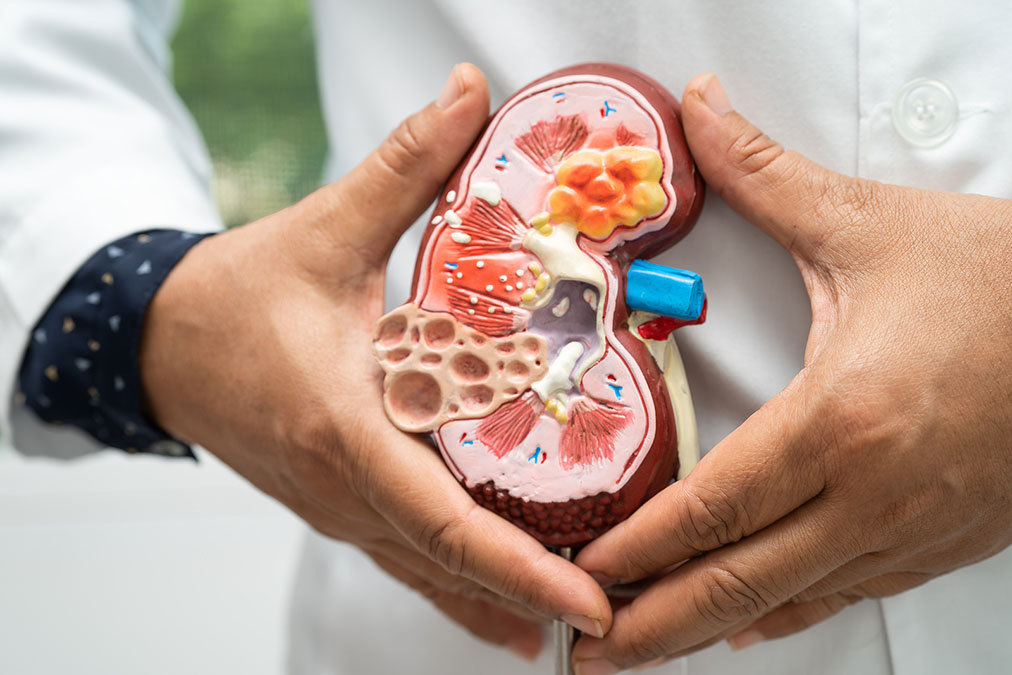 The World Health Organization (WHO) has very specific dietary recommendations for people suffering from chronic kidney disease (CKD). If you have CKD it’s likely you’re trying to stick to these recommendations.
The World Health Organization (WHO) has very specific dietary recommendations for people suffering from chronic kidney disease (CKD). If you have CKD it’s likely you’re trying to stick to these recommendations.
But that may be a mistake according to a new study published in the journal Renal Failure.
Because following those WHO recommendations for CKD will increase your risk of dying by a terrifying 25%.
The World Health Organization (WHO) generally recommends a diet low in fat and carbs, with protein as the primary energy source. However, for CKD patients, the WHO suggests a low-protein diet, as high protein intakes are thought to hasten kidney damage.
But, if CKD patients reduce their protein consumption, they increase their intake of carbs and sugar which can also be bad for their health. So, what is the ideal CKD diet? That is the question answered by this new study.
Researchers examined the relationships between macronutrient intake (carbohydrates, fats, protein) and all-cause mortality risk in 3,683 adult CKD patients whose data were collected by the National Health and Nutrition Examination Survey between 2003 and 2014.
The participants had an average age of 62.4 years, and 1,082 of them died during the follow-up period of 67 months.
Let’s see what they found:
-
1. Compared to those who consumed 60% of their energy from carbohydrates, those for whom carbs were 30–45% of energy were 24% less likely to die.
2. Compared to those who consumed 40% of their energy from sugar, those for whom sugar was 5–20% of energy were 25% less likely to die.
3. Replacing up to 30% of carbohydrates with protein and substituting 55% of sugar with non-sugar carbohydrates also lowered their all-cause mortality risk.
This indicates that the ideal diet for longevity in CKD patients consists of approximately 40% of energy from protein, 40% from non-sugar carbs, and 20% from sugar and non-animal fats.
If these findings are correct, CKD patients don’t need to eat a very low protein diet as many scientists believe. As such, it is actually necessary to replace some carbs with protein.

 Overcoming IBD
Overcoming IBD Multiple Sclerosis
Multiple Sclerosis Banishing Bronchitis
Banishing Bronchitis Gum Disease Gone
Gum Disease Gone Overcoming Onychomycosis
Overcoming Onychomycosis Neuropathy No More
Neuropathy No More The Prostate Protocol
The Prostate Protocol Brain Booster
Brain Booster
 Ironbound
Ironbound
 Solution for Shingles
Solution for Shingles
 The Bone Density Solution
The Bone Density Solution
 The Ultimate Healing Protocol
The Ultimate Healing Protocol
 The Parkinson's Protocol
The Parkinson's Protocol
 The Chronic Kidney Disease Solution
The Chronic Kidney Disease Solution
 Overthrowing Anxiety
Overthrowing Anxiety The Fatty Liver Solution
The Fatty Liver Solution The Hypothyroidism Solution
The Hypothyroidism Solution
 The End of Gout
The End of Gout The Blood Pressure Program
The Blood Pressure Program
 The Oxigized Cholesterol Strategy
The Oxigized Cholesterol Strategy
 Stop Snoring And Sleep Apnea Program
Stop Snoring And Sleep Apnea Program
 The Arthritis Strategy
The Arthritis Strategy The Vertigo & Dizziness Program
The Vertigo & Dizziness Program The 3-Step Diabetes Strategy
The 3-Step Diabetes Strategy Hemorrhoids Healing Protocol
Hemorrhoids Healing Protocol The Erectile Dysfunction Master
The Erectile Dysfunction Master Weight Loss Breeze
Weight Loss Breeze The IBS Program
The IBS Program The Insomnia Program
The Insomnia Program The Migraine and Headache Program
The Migraine and Headache Program The Neck Pain Solution
The Neck Pain Solution The Menopause Solution
The Menopause Solution The Ejaculation Master
The Ejaculation Master The TMJ Solution
The TMJ Solution The Acid Reflux Solution
The Acid Reflux Solution The Fibromyalgia Solution
The Fibromyalgia Solution The Psoriasis Strategy
The Psoriasis Strategy